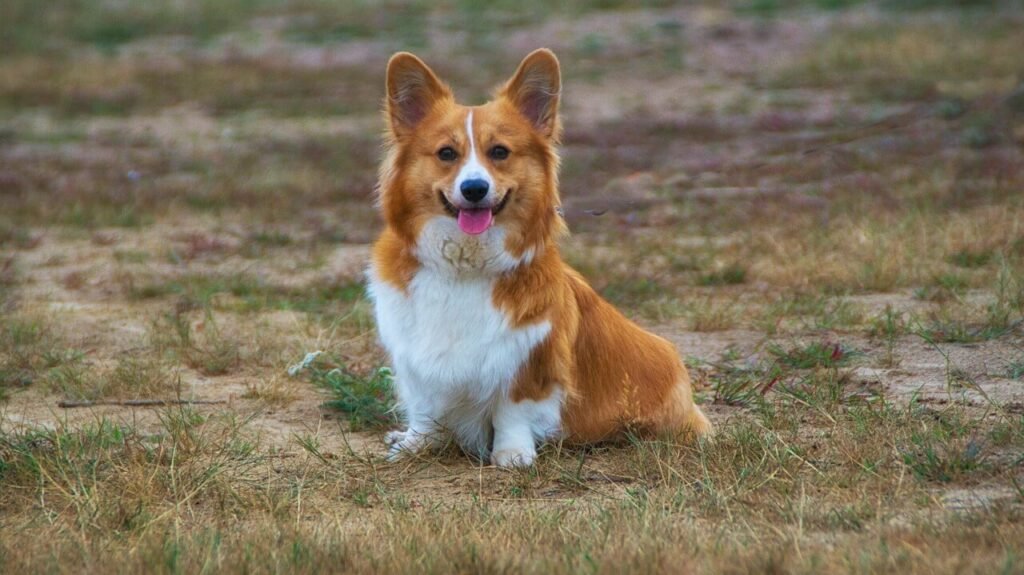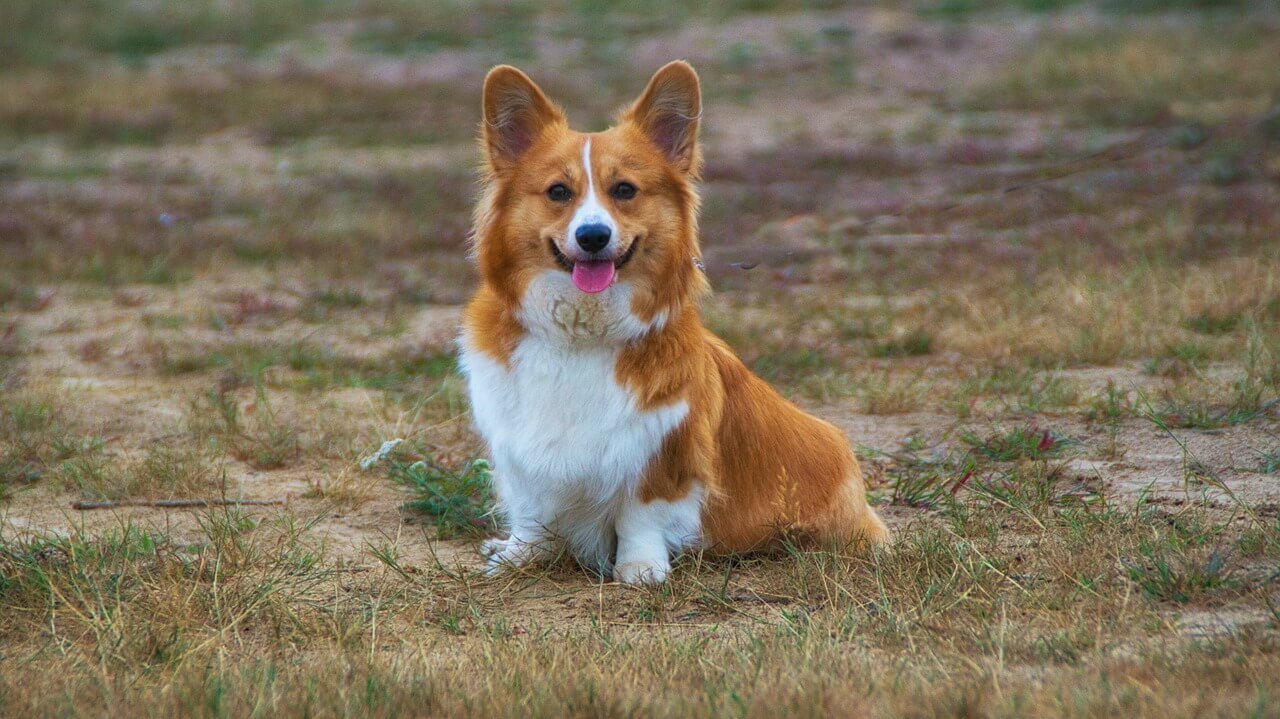Why Does My Dog Lick My Hands When I Pet Her?
Dogs have a unique way of communicating with us, and one of their most endearing behaviors is licking. If you’ve ever wondered why your furry friend insists on showering your hands with slobbery kisses every time you pet her, you’re not alone. This behavior is more than just a random act—it’s a form of communication, bonding, and sometimes even a sign of affection or curiosity. In this blog post, we’ll explore the fascinating reasons behind this common canine habit and help you understand what your dog might be trying to tell you.
The Science Behind Dog Licking: Key Reasons
Licking is a natural behavior for dogs, rooted in their instincts and biology. It serves multiple purposes, both practical and emotional. Here are some key reasons why your dog might lick your hands when you pet her:
Affection and Bonding
Dogs often lick as a way to show love and strengthen their bond with their owners. It’s similar to how humans might hug or hold hands with loved ones.Seeking Attention
If your dog enjoys being petted, she may lick your hands to encourage you to continue. It’s her way of saying, “I like this—keep going!”Exploring Their Environment
Dogs use their mouths and tongues to explore the world around them. Licking your hands might be her way of gathering information about you, such as what you’ve touched or eaten recently.Stress Relief
Licking can also be a self-soothing behavior for dogs. If your dog feels anxious or stressed, licking your hands might help her feel calmer.Taste Appeal
Sometimes, it’s as simple as your hands tasting good! If you’ve recently handled food or used scented lotions, your dog might find the taste irresistible.
Understanding these reasons can help you interpret your dog’s behavior better and deepen your connection with her. Remember, every dog is unique, so her motivations might vary depending on her personality and environment.
Is Hand-Licking Always a Positive Behavior? Things to Consider
While hand-licking is generally harmless and even heartwarming, there are times when it might indicate something else. Here are some factors to keep in mind:
Health Concerns
Excessive licking could sometimes signal an underlying health issue, such as allergies or dental problems. If your dog seems to lick excessively or compulsively, consult your veterinarian.Behavioral Issues
If your dog licks too aggressively or persistently, it might become annoying or uncomfortable. Training can help redirect this behavior into something more appropriate.Hygiene Risks
Dogs’ mouths contain bacteria that could potentially cause infections if they come into contact with open wounds. Always wash your hands after petting sessions to stay safe.Boundaries Matter
Some people might not enjoy being licked by dogs, especially if they’re unfamiliar with pets. Teaching your dog boundaries ensures she behaves politely around others.Sign of Hunger
If your dog associates licking with receiving treats, she might lick your hands as a way to ask for food. Be mindful of reinforcing this behavior unintentionally.
By considering these aspects, you can ensure that your dog’s licking remains a positive and enjoyable experience for both of you.
Check this guide 👉Why Is My Dog Acting Scared? Best 7 Behavior Tips!
Check this guide 👉Why Do Dogs Lick Other Dogs Ears? Best 7 Behavior Tips!
Check this guide 👉Why Is My Dog Biting at Their Butt? Best 7 Behavior Tips!

Reasons Dogs Lick Hands | What You Can Do |
|---|---|
Affection | Enjoy the moment and reciprocate love |
Seeking attention | Reward calm behavior instead of licking |
Exploring scents or tastes | Wash hands before interacting with pets |
Stress relief | Provide toys or activities to reduce anxiety |
Hunger cues | Avoid feeding immediately after licking |
How to Encourage or Discourage Hand-Licking
If you want to encourage or discourage your dog’s hand-licking behavior, here are some strategies to consider:
Positive Reinforcement
Reward your dog with praise or treats when she refrains from licking excessively. This helps reinforce desired behaviors over time.Redirect Energy
Offer toys or chews as an alternative activity to redirect her focus away from licking.Set Clear Boundaries
Use verbal commands like “no lick” or “stop” consistently to teach her when licking isn’t appropriate.Provide Mental Stimulation
Engage your dog in games or training sessions to keep her mind occupied and reduce the urge to lick out of boredom.Practice Patience
Changing behaviors takes time, so be patient and consistent in your approach. Celebrate small victories along the way.
With persistence and clear communication, you can guide your dog toward healthier habits while still maintaining a loving relationship.
Fun Facts About Dog Licking
Did you know that licking has been part of canine culture for thousands of years? Here are some interesting tidbits about this quirky behavior:
Puppy Origins
Puppies often lick their mother’s face to stimulate regurgitation, which provides them with food in the wild. While domesticated dogs don’t need this anymore, the instinct remains.Social Hierarchy
In packs, submissive dogs may lick dominant ones as a sign of respect. When your dog licks you, she might see you as her leader.Calming Effect
The act of licking releases endorphins in dogs, making them feel happy and relaxed—a bit like how humans feel after eating chocolate!Unique Tongues
A dog’s tongue is specially designed for licking, with rough textures that help clean fur and remove dirt.Cultural Differences
In some cultures, dog licking is seen as a blessing or symbol of loyalty, adding another layer of meaning to this universal behavior.
These fun facts highlight just how deeply ingrained licking is in a dog’s nature—and how special it makes our bond with them.
The Emotional Side of Licking
Licking is not just a physical act—it often carries deep emotional significance for dogs. Understanding the emotional motivations behind this behavior can help you connect with your pet on a more profound level. Here are some emotional reasons why your dog might lick your hands:
Comfort and Security
Dogs often lick to feel safe and secure, especially when they’re around their trusted human companions.Expressing Love
Licking can be a dog’s way of saying “I love you,” much like how humans express affection through words or gestures.Reassurance During Stressful Times
If your dog feels uncertain or anxious, licking your hands might be her way of seeking reassurance from you.Celebrating Reunions
Many dogs lick their owners’ hands excitedly after being apart, showing how thrilled they are to see them again.Building Trust
Licking can also be a submissive gesture, indicating that your dog trusts you as her leader and protector.
By recognizing these emotional cues, you can better appreciate the depth of your dog’s feelings and respond in ways that nurture her emotional well-being.
Licking as a Form of Communication
Dogs don’t speak our language, but they have plenty of ways to communicate with us—licking is one of them. This behavior serves as a non-verbal language that conveys specific messages. Here’s what your dog might be trying to tell you through licking:
“Pay Attention to Me!”
Licking can be a way for your dog to grab your attention when she wants something, whether it’s food, playtime, or cuddles.“I’m Feeling Nervous”
If your dog licks excessively during unfamiliar situations, it could signal that she’s feeling uneasy or overwhelmed.“You Smell Interesting!”
Dogs use licking to investigate scents, so your hands might carry intriguing smells from your day.“Let’s Play!”
Sometimes, licking is an invitation to engage in fun activities like fetch or tug-of-war.“Thank You for Taking Care of Me”
Licking can also express gratitude, especially if your dog associates you with providing food, shelter, and love.
Paying attention to these subtle messages can help you understand your dog’s needs and strengthen your mutual understanding.
When Licking Becomes Problematic
While licking is usually harmless, there are times when it crosses the line into problematic territory. Recognizing these scenarios early can prevent potential issues down the road. Below are signs that your dog’s licking may need addressing:
Excessive Drooling or Skin Irritation
If your dog’s constant licking causes redness or irritation on her skin—or yours—it’s time to intervene.Obsessive Behavior
Licking that seems compulsive or occurs at inappropriate times might indicate anxiety or boredom.Aggressive Licking
Some dogs lick too forcefully, which can become uncomfortable or even painful over time.Ignoring Commands
If your dog continues licking despite clear verbal cues to stop, it may require additional training or professional guidance.Health Warning Signs
Unusual changes in licking patterns, such as increased frequency or targeting specific areas, could point to underlying medical conditions.
Addressing these concerns promptly ensures that your dog stays happy, healthy, and well-behaved while maintaining a positive relationship with you.
FAQ
Why does my dog only lick my hands and not other parts of my body?
Dogs tend to focus on areas that are easiest to reach, like hands, especially during petting sessions. Hands also carry scents and tastes that intrigue them.
Is it okay to let my dog lick me?
Generally, yes, but always wash your hands afterward to avoid potential hygiene risks. If your dog licks excessively or aggressively, it’s worth addressing.
Should I stop my dog from licking altogether?
Not necessarily. Licking is a natural behavior, but setting boundaries ensures it doesn’t become overwhelming or inappropriate.
What if my dog suddenly starts licking more than usual?
Sudden changes in behavior could indicate stress, boredom, or health issues. Monitor her closely and consult a vet if needed.
Can I train my dog to lick less?
Absolutely! Consistent training and redirection techniques can help modify this behavior without affecting your bond.
Final Thoughts: Understanding Your Dog’s Licking Habits
Dogs communicate through actions, and licking is one of their most expressive gestures. Whether it’s a sign of affection, curiosity, or simply a tasty treat on your fingers, understanding why your dog licks your hands can strengthen your bond and enhance your interactions. By observing her behavior and responding appropriately, you can ensure that this adorable quirk remains a source of joy rather than frustration. So next time your pup showers you with slobbery kisses, take a moment to appreciate the love and trust she’s showing—you’re truly her favorite person in the world!
Do Cats Have Taste Buds? Best 7 Expert Tips! – Discover how cats experience flavors and why their taste is so unique.
Do Dogs Have Taste Buds? Best 7 Expert Tips! – Discover how dogs experience taste, their preferences, and what it means for their diet and health.
Can Cats Taste Sweet? Best 7 Expert Tips! – Discover why cats can’t taste sweetness, how it affects their diet, and tips to keep them healthy and happy.
Can Dogs Taste Sweet? Best 7 Expert Tips! – Discover how dogs perceive sweetness, which foods are safe, and tips to manage their sweet cravings responsibly.





